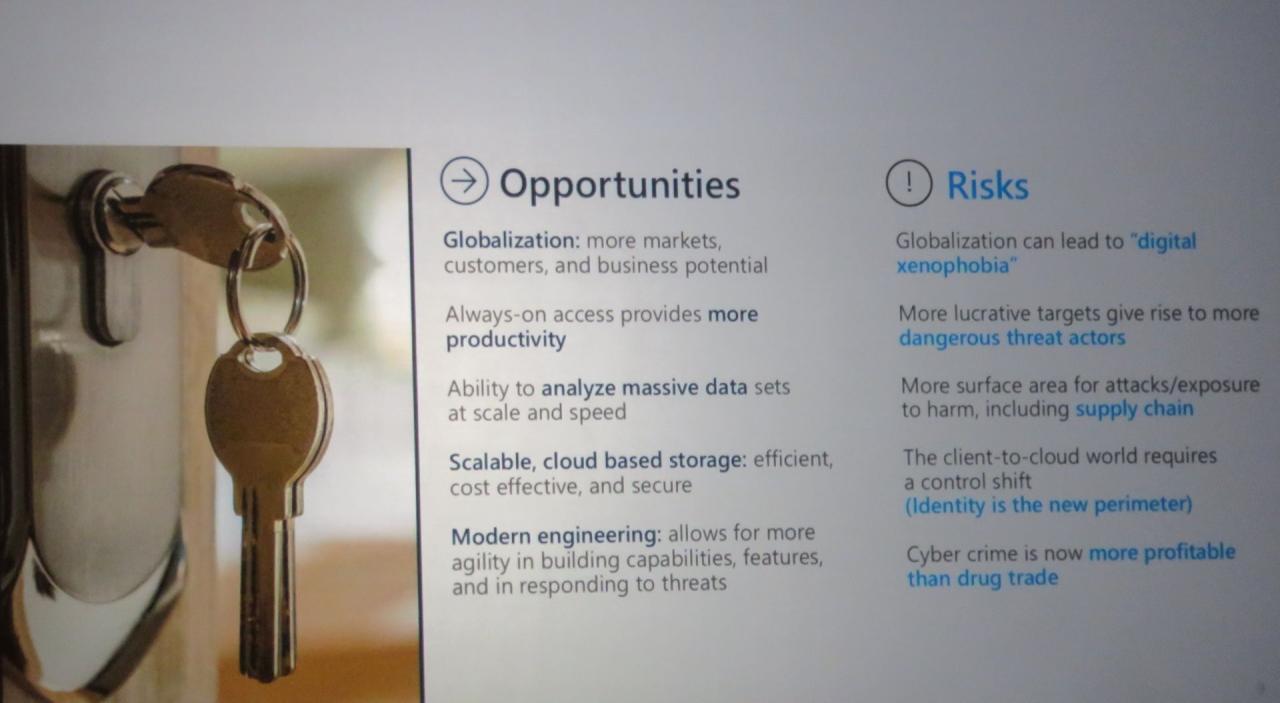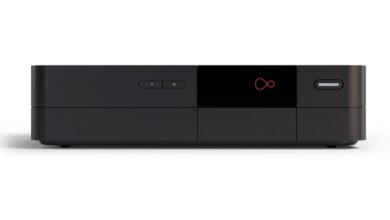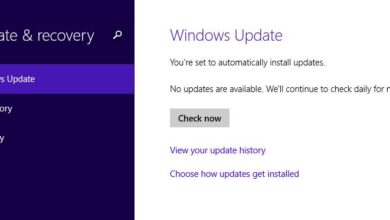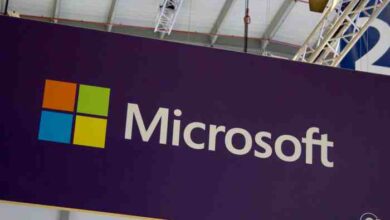What If Microsoft Got Security Right?
What if Microsoft got security right? This sets the stage for a fascinating exploration of the ripple effects such a paradigm shift would have. Imagine the trust surge, the potential market dominance, and the innovative leaps this would unlock. From increased user adoption to a stronger global presence, this is more than just a theoretical exercise; it’s a compelling look at a world where Microsoft leads in security.
The improved security would dramatically impact user trust, potentially attracting new users and boosting existing ones. A demonstrably secure Microsoft ecosystem would likely reshape market positioning, giving the company a significant advantage over competitors. This analysis also considers the innovation potential, the need for robust customer support, and the substantial financial implications such a move could bring.
Impact on User Trust and Adoption

Microsoft’s reputation, deeply intertwined with its product ecosystem, is heavily reliant on user trust. A demonstrable improvement in security across its products would have a profound and positive impact on this trust, potentially leading to significant shifts in user adoption and brand perception. The current security posture, while adequate for many, has experienced vulnerabilities that have eroded user confidence in some segments.
Addressing these vulnerabilities head-on would be crucial to regaining and solidifying this trust.Improved security in Microsoft products would bolster user trust by creating a perception of reliability and safety. This enhanced trust would manifest in a variety of ways, including increased willingness to use Microsoft services, greater comfort sharing sensitive data, and a more positive brand image. A company perceived as secure fosters loyalty, driving user retention and encouraging new users to adopt Microsoft products.
User Trust and Security Perception
Microsoft’s current user base, spanning consumers and businesses, is diverse. A significant segment of consumers are highly dependent on Microsoft products for their daily digital needs, from email to productivity software. Business users, on the other hand, rely on the security and reliability of Microsoft products for crucial business operations. Enhancements in security would impact both groups differently.
Consumers would likely feel more confident using personal accounts for financial transactions and sensitive information storage, while businesses might be more willing to migrate or adopt cloud services, leveraging the enhanced security. Increased security would lead to a shift in user behavior, potentially leading to more users opting for Microsoft products and services, especially those requiring high security.
Comparison of Security Risks
| Aspect | Current Security Risks (Microsoft Products) | Hypothetical Future (Significantly Improved Security) |
|---|---|---|
| Data Breaches | Past instances of data breaches have negatively impacted user trust, especially for businesses. | Robust security measures, including advanced encryption, multi-factor authentication, and threat detection systems, would minimize the risk of data breaches, restoring trust and confidence. |
| Malware Infections | Users are susceptible to malware infections, which can compromise personal or business data. | Advanced threat protection mechanisms and real-time threat detection systems would significantly reduce the risk of malware infection, safeguarding user data. |
| Phishing Attacks | Users are vulnerable to phishing attacks, leading to account compromises and financial losses. | Enhanced security measures like advanced email filtering, improved password management tools, and user education programs would minimize the impact of phishing attacks. |
| Vulnerability Exploitation | Known vulnerabilities in software products can be exploited, potentially leading to significant security risks. | Proactive vulnerability management, rapid patching, and security audits would ensure timely resolution of vulnerabilities, minimizing the threat to user data. |
| User Experience | Security measures sometimes interfere with the user experience, making them less convenient. | Improved security mechanisms would be integrated seamlessly into the user interface, maintaining ease of use and enhancing user experience. |
Potential Shifts in User Adoption
A demonstrably enhanced security posture would likely result in a significant increase in user adoption across various segments. For example, businesses might be more inclined to adopt Microsoft 365 cloud services, given the enhanced security features. Similarly, consumers would likely be more inclined to use Microsoft products for storing and managing sensitive financial information. This would lead to a noticeable increase in Microsoft’s user base and market share, as customers would see increased value and reliability.
The potential for expansion into new markets, especially those requiring a high level of security, would also become more viable.
Market Positioning and Competition
Microsoft’s dominance in the software and technology sector is undeniable, but maintaining that position in a rapidly evolving market requires constant adaptation. Superior security, a cornerstone of trust, can be a significant differentiator, potentially shifting market share and influencing consumer and business decisions. This section explores how improved security in Microsoft products could impact their market positioning and competitiveness.Improved security, particularly in a cloud-centric world, translates directly into trust.
This trust can translate into a significant competitive advantage. Customers are increasingly prioritizing security, making robust security features a crucial selling point. This is not just about avoiding negative publicity; it’s about proactively attracting and retaining customers who value security above all else.
Potential Effects on Market Positioning
Microsoft’s current market share in various segments, from operating systems to cloud services, is substantial. However, the current market is highly competitive. A significant improvement in security could bolster Microsoft’s position, potentially attracting new customers and increasing market share in existing segments. The positive impact on reputation and brand perception is likely to be significant, further reinforcing their current dominance.
Comparative Analysis of Market Share
A direct comparison is difficult without specific security improvement data. However, consider the impact of a company like Cloudflare, which has positioned itself as a security-focused service provider. Companies that prioritize security tend to gain market share in segments where security concerns are paramount. If Microsoft were to dramatically improve security, we can anticipate a positive impact on their market share in areas like cloud computing, enterprise software, and personal devices.
A potential increase in market share would be seen in sectors where security is a key concern, such as healthcare and finance. A decrease in market share in less security-sensitive sectors is also possible, though less likely.
Key Competitors and Competitive Landscape
Microsoft faces competition from various companies, including Google, Amazon Web Services (AWS), and others specializing in cloud services and security solutions. Enhanced security in Microsoft products could shift the competitive landscape by positioning Microsoft as a trusted and reliable partner in security-sensitive industries. Increased focus on security might lead to a more strategic alignment between the company’s cloud and security divisions, creating a synergy that strengthens their market position.
Influence on Consumer and Business Decisions
Consumer and business decisions are heavily influenced by perceived security risks. Enhanced security in Microsoft products could sway customers towards Microsoft solutions, especially in the enterprise sector, where data breaches can have severe consequences. In a world where data breaches are a frequent occurrence, consumers and businesses are becoming more discerning about the security of the products they use.
A well-executed security strategy could position Microsoft as the superior choice.
Capturing New Market Segments
Significant security improvements in Microsoft products could unlock opportunities in previously underserved or overlooked market segments. By emphasizing their commitment to security, Microsoft could attract businesses and consumers in high-risk sectors, such as healthcare, finance, and government, potentially gaining a competitive advantage in these domains. For example, the adoption of zero-trust architectures in Microsoft’s products could attract a new wave of security-conscious customers.
Innovation and Development
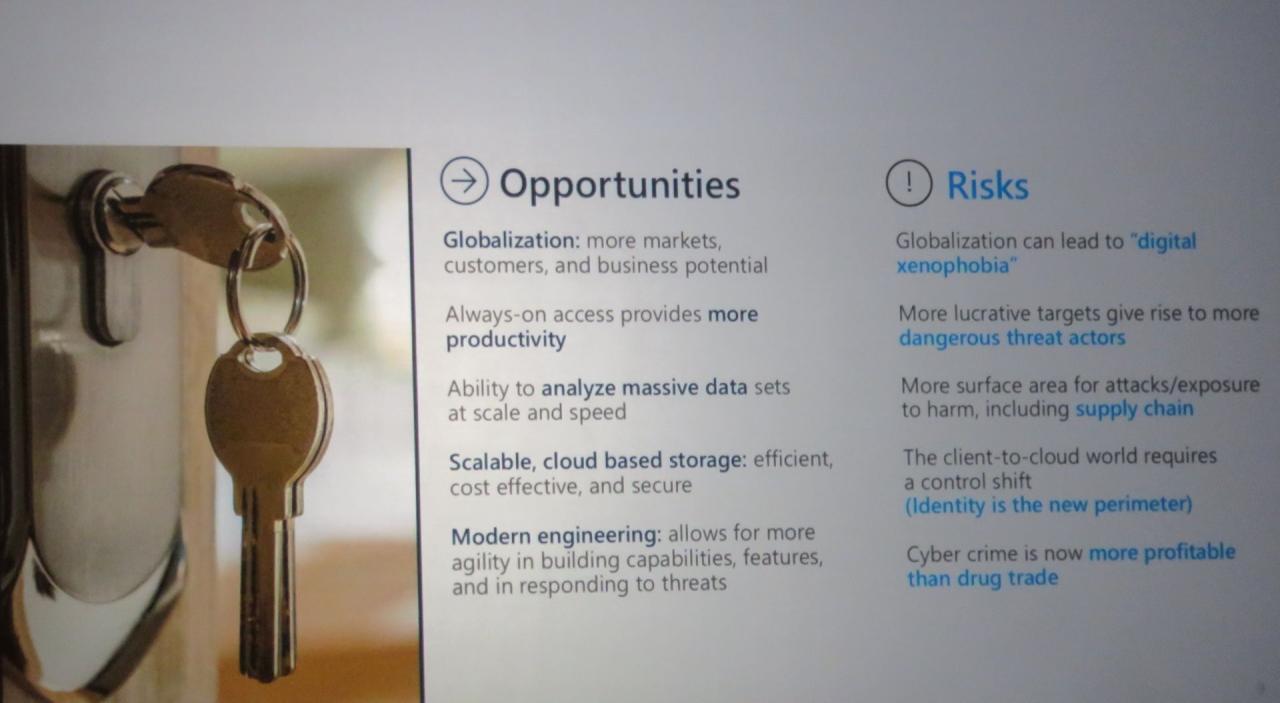
Microsoft’s potential to revolutionize the tech landscape hinges significantly on its ability to build trust and confidence in its products. A strong security foundation is not merely a defensive measure; it acts as a catalyst for innovation and development, opening doors to new markets and functionalities. Getting security right fosters a virtuous cycle where trust begets investment, which in turn fuels groundbreaking advancements.A robust security posture isn’t just about preventing breaches; it’s about enabling innovation.
A secure platform allows developers to focus on new features and functionalities, knowing their creations are built on a solid base. This frees up resources previously dedicated to patching vulnerabilities and allows for a more rapid development cycle, fostering a more competitive advantage in the market.
Investment in Security Research and Development
A demonstrably secure platform encourages increased investment in security research and development. With confidence in its security, Microsoft can allocate more resources to pioneering cutting-edge security technologies, potentially leading to breakthroughs in areas like AI-powered threat detection, zero-trust architectures, and quantum-resistant cryptography. This strategic investment can establish Microsoft as a leader in the cybersecurity industry, setting a new standard for the entire sector.
Examples of successful companies that prioritized security and reaped rewards include companies like Google and Amazon, which have demonstrated that security investments can drive innovation and competitive advantage.
Incentivizing Innovation in Related Areas
Improved security within Microsoft products can serve as a model and inspiration for other companies in the industry. It can foster a collaborative environment where best practices are shared and new security standards are established. This positive ripple effect can incentivize innovation in areas like secure cloud computing, secure software development methodologies, and improved cybersecurity education for both consumers and developers.
For instance, Apple’s approach to user privacy has influenced other companies to prioritize similar practices, setting a new benchmark for data protection.
Attracting Top Security Talent
A strong security posture and a reputation for trust attract top talent in security engineering. Companies with a strong commitment to security are often perceived as more stable and reliable employers, attracting skilled professionals who want to contribute to a secure and innovative environment. Microsoft, with its global presence and vast resources, can establish itself as a prime destination for cybersecurity experts, bolstering its position as a leader in the field.
Companies with strong security reputations often attract the best talent, as demonstrated by companies like Cloudflare and Palo Alto Networks.
Influencing Product Design and Development Processes
A robust security approach fundamentally changes product design and development processes. Security considerations become an integral part of the design phase, rather than an afterthought. This proactive approach ensures that security is deeply embedded within the product’s architecture, leading to more secure and resilient products. This shift in perspective will lead to more secure and reliable products, as seen in the growing importance of security in the development of financial and healthcare applications.
Imagine a world where Microsoft prioritized security above all else. That’s a pretty utopian vision, right? Considering recent news like the feds nabbing a Blaster suspect and continuing to track the SoBig F writer, here’s a link to the full story , it highlights the ongoing need for robust security measures. If Microsoft truly got this right, the potential for future malicious code to wreak havoc would be significantly diminished.
Potential New Security Features and Functionalities
A strong security foundation paves the way for a multitude of innovative security features and functionalities. These include:
- AI-powered threat detection and prevention systems: Integrating AI to proactively identify and mitigate emerging threats, enhancing real-time threat response capabilities.
- Zero-trust security architectures: Implementing a zero-trust model across all products and services, requiring verification for every user and device interaction, minimizing the impact of breaches.
- Quantum-resistant cryptography: Developing and integrating cryptographic techniques that can withstand attacks from future quantum computers, ensuring the long-term security of data.
- Enhanced data encryption and privacy controls: Implementing more sophisticated encryption techniques and granular privacy controls to safeguard user data in various scenarios, particularly important in the context of emerging technologies like AI.
- Advanced security training and education programs: Providing comprehensive security training for employees and developers, fostering a culture of security awareness and best practices throughout the organization.
These features, built on a secure foundation, can provide significant advantages in a rapidly evolving technological landscape.
Customer Support and Response: What If Microsoft Got Security Right
Microsoft’s commitment to robust security directly impacts its customer support landscape. A strong security posture translates to fewer security incidents, leading to a reduced volume of support requests and potentially a shift in the types of issues addressed. This shift allows support teams to focus on more complex, nuanced problems, and frees up resources for proactive security measures. Moreover, a demonstrably secure platform builds trust, reducing the need for extensive troubleshooting and reassurance.
Implications of a Strong Security Posture
A strong security posture fundamentally alters the dynamics of customer support for Microsoft. By proactively preventing security breaches, Microsoft can significantly reduce the volume and severity of support requests related to malware, phishing attempts, and data breaches. This, in turn, allows support teams to allocate resources to higher-value concerns, such as advanced technical assistance and feature enhancements. This shift from reactive to proactive support is a key differentiator.
Reduced Security Incidents and Support Requests
A well-architected security system reduces the likelihood of security incidents. This translates directly to fewer support requests. For example, robust multi-factor authentication (MFA) can drastically reduce phishing-related support calls. Similarly, strong encryption protocols limit the impact of data breaches, thereby minimizing the number of customers requiring support for data recovery or restoration. This not only improves customer experience but also streamlines operational efficiency within Microsoft’s support infrastructure.
Contrast with a Competitor Breach Scenario
Consider a hypothetical scenario where a major competitor suffers a significant data breach. Customers experiencing similar vulnerabilities with the competitor’s products might look for alternatives. If Microsoft’s security posture is demonstrably stronger, customers are more likely to trust Microsoft’s platform. This trust, often reinforced by proactive security updates and communication, can drive customer retention and even attract new users.
Robust Customer Support Channels for Security Concerns, What if microsoft got security right
Even with a strong security posture, customers might still have security-related concerns. Robust customer support channels are essential to address these concerns effectively. This includes easily accessible FAQs, well-documented security guides, 24/7 support options, and dedicated security experts to address complex queries. Crucially, clear and transparent communication about security incidents and proactive measures taken by Microsoft is paramount.
Best Practices for Customer Support in a Secure Ecosystem
Effective customer support in a secure ecosystem requires a multifaceted approach. A key best practice is proactive communication. This means informing customers about security updates and recommended actions before they experience issues. A second best practice is to prioritize security expertise within support teams. Well-trained personnel are essential to provide accurate and timely responses to security-related queries.
Imagine if Microsoft nailed security. The possibilities are endless, especially considering how crucial robust online protection is today. Think about how that could revolutionize the internet, perhaps even inspiring projects like NASA’s innovative work in space, such as nasa takes the internet into space. Ultimately, a secure digital ecosystem would empower innovation and accessibility in countless ways, and positively impact how we use technology.
Finally, fostering a culture of security within the support organization ensures consistent and reliable security-focused support. This includes ongoing training and awareness programs for support staff.
Financial Implications
Improved security at Microsoft isn’t just about protecting user data; it’s a significant financial opportunity. A robust security posture translates into a stronger brand, increased investor confidence, and substantial revenue streams. A company perceived as trustworthy in handling sensitive information commands a premium in the marketplace.A secure Microsoft directly impacts various financial aspects, from software sales to cloud service subscriptions.
Increased trust in Microsoft’s systems leads to higher adoption rates and greater user engagement, ultimately boosting revenue across its diverse product portfolio.
Potential Revenue Growth from Enhanced Security
The increased trust and adoption resulting from improved security directly influence revenue streams. A secure platform encourages more users to adopt Microsoft products and services, leading to a higher volume of software licenses, cloud subscriptions, and other revenue-generating activities.
- Software Sales: Customers are more likely to invest in software solutions from a company they trust. Improved security measures reassure users, potentially increasing software sales across all product lines, from Office 365 to specialized enterprise software.
- Cloud Services: A secure cloud environment attracts businesses seeking data protection and reliability. Enhanced security features, such as advanced encryption and multi-factor authentication, position Microsoft as a leader in secure cloud solutions, driving increased cloud service adoption and revenue.
- Consulting and Support Services: As a leader in security, Microsoft can leverage its expertise to offer consulting services to customers, helping them implement robust security strategies. This could generate significant revenue streams from professional services.
Impact on Stock Price and Investor Confidence
Investor confidence is directly correlated with a company’s perceived risk. Microsoft’s strong security posture directly influences investor confidence.A robust security strategy communicates a commitment to data protection, reducing perceived risk. This results in a more positive market perception, attracting investors and potentially boosting the stock price. Companies with strong security records tend to perform better financially in the long run, attracting investors and supporting stock price appreciation.
Consider the case of companies that have faced significant data breaches – the stock price often takes a hit, demonstrating the direct link between security and financial performance.
Cost Savings from Reduced Security Incidents
Investing in proactive security measures significantly reduces the risk of costly security incidents. By preventing data breaches, Microsoft saves substantial amounts of money that would otherwise be spent on remediation efforts, legal fees, and reputational damage.
Imagine Microsoft finally nailing security. The implications would be huge, especially considering breakthroughs like those detailed in the fascinating article on plastic discovery means advanced memory. If we could leverage the potential of these new memory technologies, combined with robust security protocols, the possibilities for innovation in computing would be limitless. Ultimately, a more secure digital future would empower us all.
- Reduced Remediation Costs: Proactive security measures, such as robust encryption and intrusion detection systems, significantly reduce the likelihood of security breaches. This, in turn, minimizes the costs associated with remediating security incidents, including data recovery, legal expenses, and customer compensation.
- Minimized Reputational Damage: A strong security posture safeguards Microsoft’s reputation. Maintaining a strong reputation is invaluable in the tech industry, avoiding negative press and customer churn, thereby minimizing potential damage to the brand and associated revenue loss.
Financial Performance Comparison
The table below illustrates a potential comparison between Microsoft’s current financial performance and the potential gains from enhanced security. It’s crucial to note that these figures are illustrative and based on various factors that could influence financial outcomes.
| Metric | Current Financial Performance (Illustrative) | Potential Gain from Enhanced Security (Illustrative) |
|---|---|---|
| Revenue (USD Billions) | 160 | 175 |
| Net Income (USD Billions) | 40 | 45 |
| Stock Price (USD) | 300 | 320 |
Global Impact and Responsibility
Microsoft’s commitment to robust security extends far beyond its own operations. A global commitment to security from Microsoft would ripple through the entire tech industry, fostering a safer digital environment for everyone. This isn’t just about protecting Microsoft’s users; it’s about setting a new standard for cybersecurity, influencing international cooperation, and promoting ethical practices worldwide.
Impact on the Tech Industry
A demonstrably secure Microsoft would set a high bar for the entire industry. Competitors would be compelled to improve their own security practices, and the market would demand higher standards from all technology providers. This pressure would drive innovation in security technologies and methodologies, ultimately benefiting all users. A secure ecosystem built on shared responsibility is essential for a future where technology is trusted and accessible for everyone.
Promoting and Implementing Security Best Practices Globally
Microsoft can lead the charge by actively promoting and implementing security best practices globally. This includes sharing its security knowledge and expertise with developing countries, educational institutions, and non-profit organizations. Open-source security tools and frameworks, developed and maintained by Microsoft, would accelerate the adoption of secure practices across the globe. This initiative would significantly reduce vulnerabilities and threats, creating a more robust digital infrastructure worldwide.
Influence on International Security Standards and Policies
Microsoft can play a critical role in shaping international security standards and policies. By collaborating with governments, international organizations, and industry peers, Microsoft can advocate for stronger cybersecurity regulations and frameworks. This could involve contributing to the development of international treaties and agreements, or providing input on national security policies. Active participation in global forums and initiatives is essential for ensuring that security standards keep pace with evolving threats.
Examples of Commitment to Global Security
Microsoft could demonstrate its commitment to global security through several initiatives. For instance, Microsoft could establish a global cybersecurity training program for IT professionals in developing nations. This program would equip local personnel with the knowledge and skills needed to combat cyber threats effectively. Furthermore, Microsoft could sponsor research into emerging cybersecurity threats and solutions, and actively support open-source security projects.
These initiatives would foster a culture of security awareness and expertise worldwide.
Ethical Considerations and Responsibilities
Ensuring the security of its products worldwide is a fundamental ethical responsibility for Microsoft. This includes addressing potential vulnerabilities promptly, implementing robust security protocols, and actively engaging with affected communities. Microsoft must ensure that its products are not exploited for malicious purposes, and must prioritize the privacy and safety of users globally. Furthermore, Microsoft should take a proactive approach to mitigating potential risks associated with the use of its products in different geopolitical contexts.
The company’s ethical approach will be critical in building trust and maintaining a positive reputation globally.
Last Point
In conclusion, the implications of Microsoft prioritizing security are profound. Enhanced security could transform user trust, solidify market position, and drive innovation. This isn’t just about fixing vulnerabilities; it’s about reshaping the future of technology. From the financial benefits to the global impact, a secure Microsoft could revolutionize the industry. It’s a compelling vision, and one worth considering in the context of today’s digital landscape.

